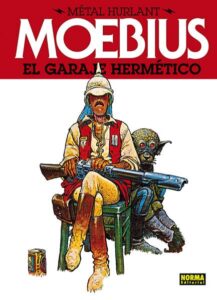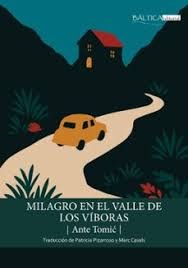About the book
«With an excellent description and setting of the time, and with wonderful characters, reading “The Persecuted” has been shocking to me and I have realized how much I did not know about a world that was also mine. I thank Fernando Benzo for writing this gem. »
Luz Gabás, winner of the 2023 Planeta Prize
In The Persecuted echoes of many novels and films resonate. It is possible to find references to the tough guys of crime novel classics, such as Raymond Chandler or Dashiell Hammet, to the urban toughness of James Ellroy or to the uncompromising rhythm of Don Winslow and, closer to home, to elements typical of the novels of Vázquez Montalbán or Juan Marsé. Regarding cinema, the novel evokes the so-called quinquis cinema that was made in Spain during the Transition, films like Deprisa, deprisa or Navajeros, among others. But also, for different reasons, American films like Red Hot, The Price of Power, Sleepers, The Silence of the Lambs or Once Upon a Time in America.
THE DARK FACE OF A TIME AND A COUNTRY
The Transition was a time of success that is constantly missed in comparison with the political confrontations of these years. The move was a brilliant, fun and creative stage that has remained an emblem of the modernization of Spain. However, both periods had their dark side, which is rarely talked about: that of drugs and crime, in addition to the activity (that, not limited to the period) of the State sewers. This novel, winner of the last Azorín Prize, as easy to read as it is difficult to summarize, presents, in the foreground, that triple dark side of those years and today. The Persecuted is, first of all, an excellent genre novel, a genre that involves action, police, thriller, denunciation… and difficult to define with a label. But, beneath its absorbing and fast-paced plot, it is – we would say above all – an exciting story of loyalties and betrayals, of friendship, of hope, a reflection on the passage of time and dreams, a great social fresco, the chronicle of a time and a country that are ours. The chronicle of its dark side.
There is no title in Spanish fiction in recent decades that resembles this one. The Persecuted is a unique novel, absolutely unusual in the panorama of Spanish narrative; although it is made with wickers with which the reader is familiar, and although echoes of many novels and also films resonate in it. It is possible to find in them references to the tough guys of crime novel classics, such as Raymond Chandler or Dashiell Hammet, to the urban toughness of James Ellroy or the uncompromising rhythm of Don Winslow and, closer to home, to elements of the novels by Vázquez Montalbán or Juan Marsé. As for cinema, the novel evokes the so-called quinquis cinema that was made in Spain during the Transition, films like Deprisa, deprisa or Navajeros among others. But also, for different reasons, American films like Red Hot, The Price of Power, Sleepers, The Silence of the Lambs or Once Upon a Time in America.
The novel begins with a scene that could be in Deprisa, deprisa by Saura: three teenagers flee in a stolen car, pursued by the police after committing a robbery; A fifteen-year-old is driving at full speed and Los Chichos is playing on the car’s cassette player. The chase ends with the death of the driver and leader of the gang, Chungo. Dardo, the brain, and Peyo, the two main protagonists of the novel, survive.
More than thirty years later, today, Daniela, a journalist in her thirties, asks the Minister of the Interior at a press conference about a shady matter related to the State’s sewers. Daniela is brave, determined and, driven by the idealism of trying to change the world, even if only a little, she likes to write denunciation articles in the important newspaper where she works. Her question explodes like a missile at the Ministry of the Interior. The matter she has touched on is highly sensitive, she refers to the minister’s possible negotiations with a dangerous Serbian criminal, Zoran Lazic, so that he, in exchange for favorable judicial treatment, does not uncover an extensive network of police corruption.
The Minister of the Interior, Luis Cáceres – who moves “shaking his body with his characteristic gait, which gives him a certain air of disco hotties” – is a very party type, who makes up for his intellectual shortcomings with the ability to conspire. politics and, within whose “ambition free of limits or squeamishness”, is the goal of being president of the government. Since the scandal that Daniela is trying to uncover could ruin that purpose, she instructs her press chief, Ignacio Montes, to make her a tempting offer: not to write about the matter of the Serbian Lazic and to do so, in exchange, for a case no less attractive for those who will provide him with the necessary information, the story of a dangerous and elusive Spanish criminal, not known to the public, who has been dodging the police and justice for thirty years: a certain Gabriel Melgar, nicknamed… Dardo.
Ignacio Montes is a former co-worker of Daniela, who went (sold?) to politics. A verbal fencing is established between the two, and not just verbal. She feels like a true investigator and he, the closest thing to a spy, for which she uses spy poses, but lacking the necessary attractiveness. Daniela has an added incentive to investigate the history of Lazic. Her boyfriend, Raúl Puente, is the Serbian’s lawyer and in those days he suffers a fatal accident with all the traces of being a covert murder.
Source: https://algunoslibrosbuenos.com/los-perseguidos


